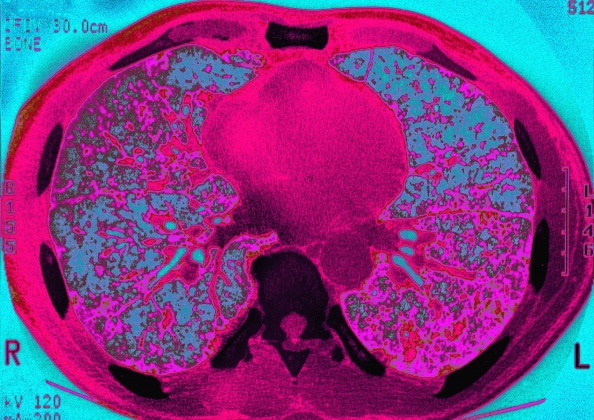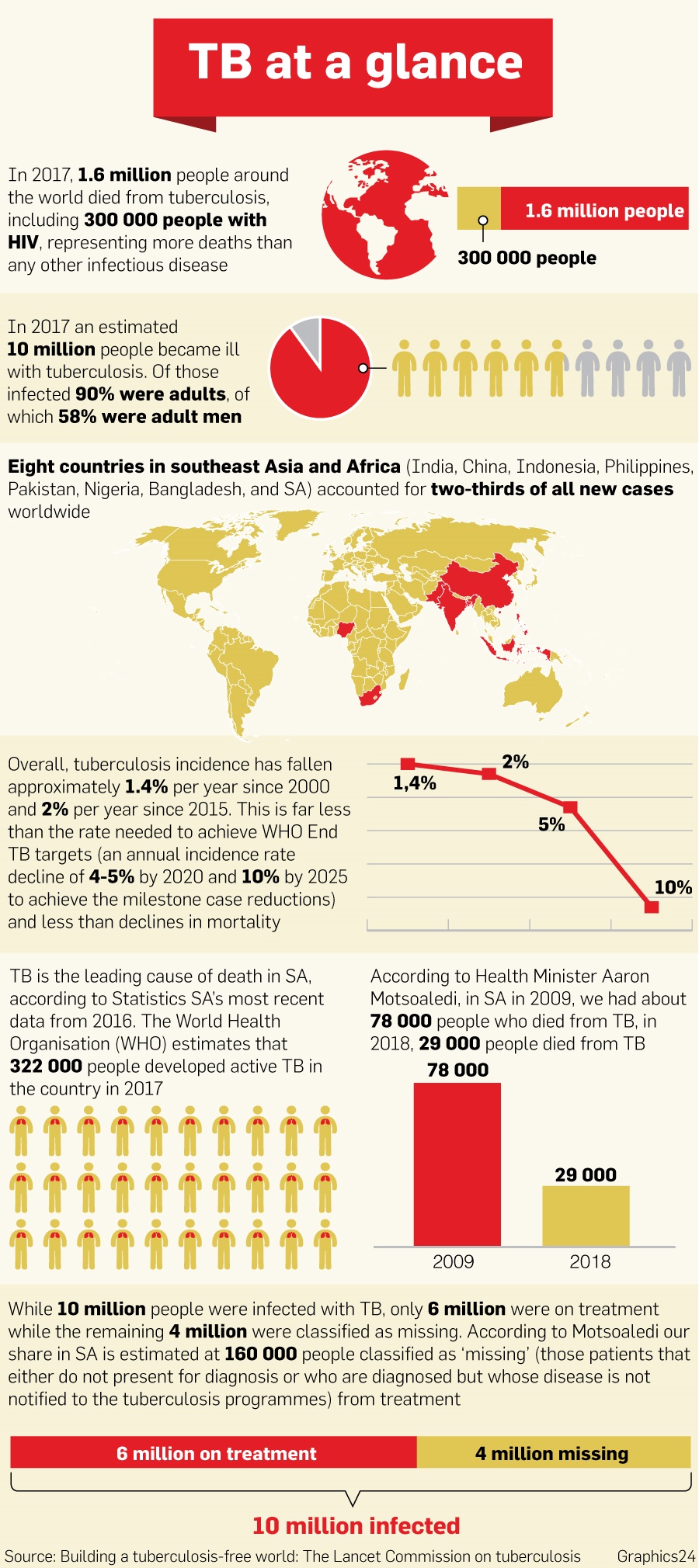
Investing in high-quality rapid diagnostics and treatment, reaching those at high risk for the disease and increasing investment to speed up research and development – these are three of the five priority areas that a Lancet commission has identified as pivotal in achieving a tuberculosis-free world within a generation.
The remaining priorities include holding countries accountable for the progress made and making investments in programmes a shared responsibility between governments and private sector donors.
The 54-page report, released last week, marks the end of an almost two-year journey with significant contributions from international and local TB leaders in public health and science.
The commission set out to answer the question of how countries highly burdened by tuberculosis, and their development partners, should target their future investments to ensure an end to tuberculosis was achieved.
TB, an infectious bacterial disease mainly affecting the lungs, has plagued humanity since before recorded history and has killed hundreds of millions of people in the past two centuries. It is still a leading killer in South Africa.
In 2017, 1.6 million people died from TB, including 300 000 people living with HIV – representing more deaths than any other infectious disease.
In September last year the first high-level UN meeting on TB resolved to make ending this disease a global priority.
Heads of state and government representatives from all UN member states committed to take major steps towards building a TB-free world.
They agreed to successfully treat 40 million people with TB and to prevent at least 30 million from becoming ill from last year until 2022, by providing preventive treatment.
But, as the authors of the report note, this will be far from easy.
The report said many people with TB, especially the poorest, couldn’t access or afford high-quality TB services.
Diagnostic and treatment capacity was not always available where the need was greatest.
Consequently, up to 35% of people with TB were not being diagnosed and treated, or made known to national tuberculosis programmes.
TB research and development had historically been chronically underfunded and global efforts to end the scourge had been undermined by insufficient political will and financial investments.
“Unless urgent steps are taken to substantially increase research and development funding to enable the development of new and more patient-friendly treatment strategies, as well as transformative diagnostics and vaccines, rapid declines in tuberculosis mortality will prove difficult.”
Delivering the keynote address at the launch of the report, Health Minister Aaron Motsoaledi said this was something the country had already been prioritising.
“In the past nine years we have taken the TB programme very seriously.
This is illustrated by the large scale-up of the use of Genexpert [a rapid-testing device]. We’ve been the first country in the world to scale up its use nationally,” he said.
The country also has the world’s largest number of patients on bedaquiline – a treatment drug for drug-resistant TB with proven good outcomes – as 20 190 of these patients out of the 28 746 around the world are in South Africa.
He also announced that the conditional grant for the 2019/20 financial year to tackle TB issues would be R485.3 million.
Added to that would be a R35 million investment in TB research supported by the science and technology department over the next three years.
The report authors stated: “Globally, the priority must be to deliver person-centred and family-centred services to all individuals with tuberculosis who present to care. This approach means ensuring high-quality diagnostics, treatment, and prevention modalities are available to all, wherever they seek care. Ultimately, the fight against tuberculosis will not be won unless countries ensure that everyone, not just high-risk groups, can access essential health services without risking catastrophic medical costs.”
 |
| ||||||||||||
| |||||||||||||




 Publications
Publications
 Partners
Partners









